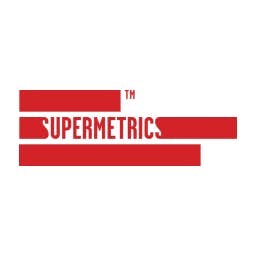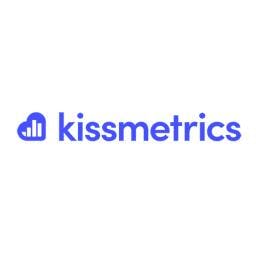Unless you have been living under a rock, you will agree that eCommerce is the present (and our future). Two years ago, when the pandemic upended how people lived and operated their businesses, little did we know how much we would start relying on the online world.
According to a McKinsey report, businesses have accelerated their digital transformation by five years. Businesses that did not think that work from home was their cup of tea have thrived and how. People are 47% more productive while working remotely.
From groceries and clothing to electronic gadgets and car cleaning — there is nothing we cannot purchase or book for online. That is the beauty of eCommerce. Statista reports that the global e-retail revenues will amount to $6.54 trillion in by 2022 from $3.53 trillion in 2019.
Naturally, with 24 million eCommerce businesses in the world in different domains and for different purposes, the competition is bound to be rife. You cannot go by a hunch to know how well your eCommerce business is performing. You need to take help from numbers.
To maximize your operational reach and remain competitive, it is important to have the right tools to analyze your business success and spot areas for improvement.
You see, eCommerce analytics tools can offer you powerful and robust data-driven insights to help you measure your progress and stay ahead of the curve. In the next section, we will learn how the tools can complement your eCommerce storefront.
How eCommerce analytics tools can help your business
Modern-day online businesses have a lot of data and key metrics at their disposal. It can be easy to get lost in all the numbers and get overwhelmed. However, if you focus only on key measurements then your analysis will stay relevant.
This approach is well-oriented towards making decisions for future growth opportunities with ease and without much confusion. Ecommerce analytics tools help you utilize the data from your eCommerce website to measure the success of your operations.
Depending on the metrics you want to optimize, you can pick from the common Key Performance Indicators (KPIs) to indicate the health of your website. Analytics are helpful in giving you an idea of how well various aspects are performing during certain periods.
It involves everything — from product sales to user experience and the number of purchases compared with total online store visitors. Let us take a look at the following KPIs, which can help you start analyzing the performance of your eCommerce business pronto:
a. Revenue Per Visitor (RPV)
This is the estimated value of each visitor on your website. It is the total revenue you generate divided by the total number of website visitors.
b. Average Conversion Rate
This gives you a measure of how many people (or potential customers) who visit your website convert into customers. It is calculated by dividing the number of visitors who purchase from your storefront by the total traffic in that duration.
c. Average Order Value (AOV)
This is the amount a customer usually spends when placing an order on your eCommerce site. It is calculated by dividing your total revenue by the number of orders you receive.
By keeping an eye on eCommerce metrics like these, you can easily convert more leads into customers and set accurate budgets for your eCommerce company. The data helps you devise effective marketing and pricing strategies.
The importance of using superlative eCommerce analytical tools
Ecommerce software helps with the optimization for KPIs specific to your eCommerce business and allows you to deepen your understanding of the target customers. This is especially important if you want every marketing effort to count for you.
The right analytics tools can help you understand your visitors’ browsing patterns and their buying behaviors. The more information you have about their thinking and decision-making processes when they visit your eCommerce website, the easier it is for you to fulfill their expectations and make them purchase from you.
You can generate customers’ interest in your offerings by meeting their specific needs. Analytics comes in handy for significantly increasing your conversion rates and enhancing customer engagement and their overall shopping experience.
The best eCommerce analytics tools in the market
If you have read this far, you know that analytics platforms are vital for the successful development of an eCommerce store. They allow you to understand the customer behavior and to adapt your strategy accordingly.
You can establish KPIs meant to help you gauge the mechanics behind your business success or failure. However, not all tools serve the same purpose, and the functionality also differs. Plus, you also need to choose a tool which is most helpful in your domain.
However, the market is full of options and frankly speaking, it can get a bit tedious for someone who has never done the research before. Upgrading or switching to another tool is also a hassle, so you have to tread carefully and not commit to a tool you will later regret deploying.
So, which eCommerce analytics tool should you choose? In the next section, we will list the top ten options to choose from. Let us begin:
1. Optimizely

This is a great platform for business owners to improve conversions for an enhanced shopping experience. They offer specific features for eCommerce companies, like A/B testing that can be used in designing personalized landing pages or tweaking certain parts of your website. The tool is data-driven and derives actionable insights from user behavior.
Features:
- Testing different checkout options can help to reduce shopping cart abandonment.
- Assess using chatbots to automate and improve your customer service using Optimizely.
- By collecting actionable customer-focused data, you can influence site optimization to provide a better experience for your users.
2. Crazy Egg

This is an innovative analytics tool that helps you analyze and use your eCommerce traffic data to improve customer experience. It provides easy access to data on user-friendly analytics dashboards, so businesses can make better decisions.
The tool also helps you understand how your eCommerce storefront performs and acts on different devices. Businesses of any size can use it for analytics for advanced segmentation.
Ecommerce stores can get better insights into their customer base and get crucial data to create an immersive online experience for every visitor in a niche market. Talk about modernity!
Features:
- Heatmaps and site recordings show the visitors' experience on your website and allow you to see the section being viewed most by the visitors.
- The “Scroll Maps” feature helps check if all Call-To-Action (CTA) buttons are in the right place.
- The A/B testing feature allows you to create websites with different content displays and experiment with whichever works better.
3. Glew.io

This gives real-time data and insights across all platforms integrated with an eCommerce business on a single dashboard. Glew has features that save time by eliminating manual reporting tasks. The software is a tool suitable for both smaller eCommerce businesses and larger ones.
Features:
- Track sales data from all platforms in one place.
- Differentiate best sellers from products that are less profitable with Glew.io.
- Target specific customer segments with advanced analytics and review their buying behaviors.
- Review data from different advertising networks such as Google Ads, Facebook Ads, and Instagram Ads to analyze the performance of your social media marketing strategy.
4. Google Analytics

This is a free tool by Google that can give you all the information needed for tracking site traffic. However, the “Enhanced Ecommerce” feature provides merchants with powerful metrics and enables them to see how people arrive at their sites. It tracks them through each stage of your online funnel before they make a purchase decision.
Features:
- Identify the weak points in your checkout process or comprehend shopping cart abandonment on Google Analytics.
- Check out the pages on your site where visitors spend most of their time and ones that have a high bounce rate to make changes accordingly.
- Use traffic analytics data to find out the sources of website traffic and figure out what drives the maximum conversions for your eCommerce business.
- Understand the lifetime value of a customer, as well as identify items that are selling like hot cupcakes and those that are not, to improve your sales performance.
5. Supermetrics

This is a marketing analytics tool that pulls data from various sources to help you understand which campaigns and channels are boosting your conversions. You can use the software to measure conversion rates against various metrics such as time spent on site or channel traffic.
The analytics are useful in defining the success of a marketing campaign in bringing more customers into the conversion funnels.
Features:
- Automate data refreshes and schedule email campaigns to access the latest data for analysis.
- Visualize the data sets gathered from different marketing channels such as Shopify, Facebook Ads, Google Ads, and other platforms.
Resetting Online Shopping Post-Pandemic: IoT In Ecommerce
Explore Now6. Woopra

This is a product analytics solution with features designed to analyze end-to-end user journeys. Woopra helps identify drop-off points to reduce the risk of abandoned orders. The software also allows you to use triggers to take real-time actions based on user behavior. You can personalize your message and connect with the right audience through relevant offers or messages.
Features:
- Find out parts of your eCommerce website that need the most work.
- Review abandonment rates to identify situations when customers drop off.
- It helps measure the average time taken by customers to make a buy decision.
7. Matomo

Formerly known as Piwik, Matomo is an open-source eCommerce analytics software. It possesses analytical features similar to that of Google Analytics. Alongside the analytical capabilities for website traffic analysis, Matomo also comes equipped with additional eCommerce monitoring features. The tool aims to boost your online shop's performance.
Features:
- Use built-in triggers to take real-time action based on user behavior.
- Personalize and target your messages across marketing channels based on consumer location and product.
- View comprehensive reports that show you metrics such as the average order value and conversion rate to resolve any issues causing shopping cart abandonment.
- If data privacy is a concern, assure your users that they have 100% ownership of their data, while they can choose to securely store it on your eCommerce platform.
8. Hotjar

This is a specialized tool that helps you understand user behavior on your eCommerce storefront using heatmaps. Hotjar provides insights into where people spend the most time on your product or service pages and allows you to identify areas of high interest for visitors. It is useful for designing marketing campaigns and collecting customer feedback.
Features:
- Visualize customer clicks, scrolls, and movements on your eCommerce store using heatmaps.
- Export the heatmap analytics data to gain visual insights into how customers use your online website.
- Forward incoming customer feedback to relevant teams.
- Automatically run your Net Promoter Score® surveys and they can be triggered in response to specific customer actions.
Is Building An Ecommerce Website A Costly Affair?
Learn Now9. Kissmetrics

This is the perfect analytics solution for building a scalable and profitable eCommerce company. The analytics tool offers many features along with a people-centered approach that helps you increase customer acquisition rates.
It provides detailed information about which products people buy on your eCommerce site or how often they return after purchasing something. You can use the testing and staging sandboxes to test your strategies before implementing them.
Features:
- Experiment with different marketing strategies using significant insights generated by the tool.
- Improve your lead generation process as the tool stores information on each customer interaction.
- Get information about your business performance with Kissmetrics' deep data tracking functionalities.
10. FullStory

This is a Digital Experience Intelligence (DXI) platform that equips organizations with the information needed to improve digital experiences. The platform captures customer experience data and offers analytics and actionable insights. The platform allows eCommerce businesses to proactively optimize the digital experience of their customers.
Features:
- Use the power of data by understanding what impacts revenue.
- Make informed decisions with the complete experience data of every customer.
- Streamline workflows with a data-driven approach to troubleshooting and remediation.
- Boost customer growth and retention by experimenting with your digital experiences and have customers keep coming back.
Over to you
An eCommerce analytics tool can be extremely valuable for any business looking to improve its operations. That helps in gathering crucial information about buyers based on their activity, location, responses to marketing campaigns, web browser history, and abandoned shopping carts. The data is analyzed to derive value and make informed decisions to boost conversions.
It is important for you to choose the right analytics tool that works in tandem with the scale of your business. The tool should be able to collect and analyze crucial data about your customers’ thought processes and browsing habits.
Tools that record customer interaction with your eCommerce website can give you helpful insights to improve storefront experience. You can generate interest amongst your target audience and convert them into long-term customers.
If you need help deciding which eCommerce analytics tool is apt for you and how it can integrate with your backend, the specialists at Intuz will help you with the end-to-end implementation process. Please fill in the form to get started today.




